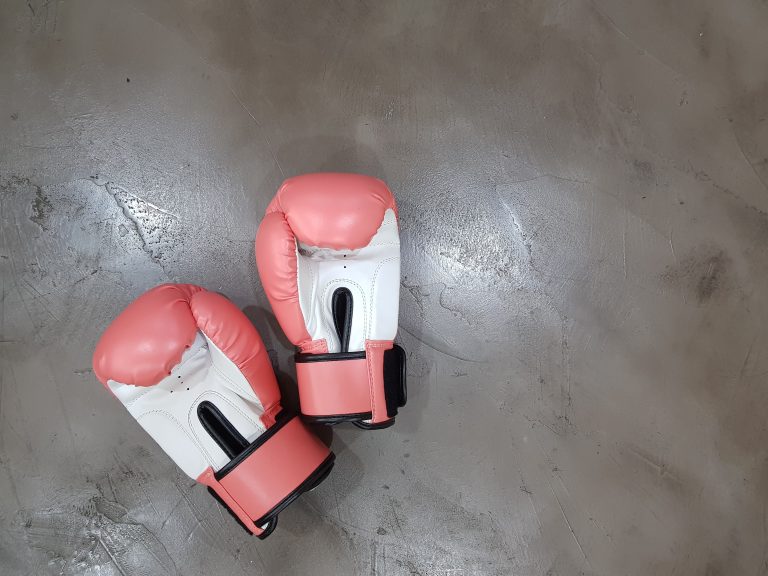Why Karate is Good for Your Child: Benefits and Reasons
Karate is one of the most popular martial arts in the world, and for good reason. It can provide children with a number of benefits, both physical and mental. Karate teaches children self-defense, discipline, self-confidence, and respect for themselves and others. In this blog post, we explore why karate is good for your child and what benefits you can expect.
Physical Benefits
Karate involves a lot of physical activity, which makes it an excellent way for children to stay active and get exercise. Here are some of the physical benefits of karate for children:
Improves Cardiovascular Health
Karate involves a lot of movement, from punching and kicking to jumping and running. All of this movement can help improve your child’s cardiovascular health by strengthening their heart and lungs.
Increases Strength and Flexibility
Karate involves a lot of movements that require strength and flexibility, such as jumping and kicking. As your child practices karate, they will develop stronger and more flexible muscles, making them less prone to injury.
Improves Coordination and Balance
Karate involves precise movements that require coordination and balance. As your child practices karate, they will develop better coordination and balance, which can improve their performance in other sports and activities.
Mental Benefits
Karate can also provide children with a number of mental benefits. Here are some of the mental benefits of karate for children:
Teaches Self-Discipline
Karate requires children to follow specific rules and practice techniques over and over again. This helps them develop self-discipline, which can be applied to other areas of their life, such as schoolwork and chores.
Builds Self-Confidence
As children practice karate and achieve higher ranks, they will gain a sense of accomplishment and self-confidence. This confidence can help them navigate social situations and handle challenges in other areas of their life.
Teaches Respect for Themselves and Others
In karate, children are taught to respect their teachers, their fellow students, and themselves. This respect can help them build strong relationships with others and develop a sense of self-worth.
Other Benefits
In addition to the physical and mental benefits, karate can also provide children with a number of other benefits, such as:
Develops Problem-Solving Skills
Karate requires children to think on their feet and solve problems quickly. This can help them develop strong problem-solving skills that can be applied to other areas of their life.
Teaches Self-Defense
Karate is a self-defense martial art, meaning that it teaches children how to defend themselves if they are ever in a dangerous situation.
Why is Karate Good for a Child: Frequently Asked Questions
Karate is a popular martial arts form that has been around for centuries. Many parents have expressed an interest in enrolling their children in karate classes, but they have some questions about the benefits that karate can offer. In this blog post, we will answer some of the most frequently asked questions about why karate is good for a child.
1. What are the physical benefits of karate for a child?
Karate is a great form of exercise for children. It involves a lot of movement, including running, jumping, kicking, and punching. Karate helps to strengthen a child’s muscles and improve their flexibility, balance, coordination, and endurance. Additionally, it can help to maintain a healthy weight and improve cardiovascular health.
2. What are the mental benefits of karate for a child?
Karate is not just about physical exercise. It also offers several mental benefits for children. Karate requires focus, discipline, and self-control. Children who practice karate regularly may develop better concentration and attention span. They may also learn how to regulate their emotions and manage stress, which can be especially useful for children who struggle with anxiety or anger issues.
3. Can karate help a child develop self-confidence?
Yes, karate can help a child develop self-confidence. Through karate training, children can learn how to set goals, work hard to achieve them, and overcome obstacles. As they progress through the ranks, they can earn belts and feel a sense of accomplishment. Additionally, karate can help children develop a sense of respect for themselves and others, which can boost self-esteem.
4. Is karate safe for children?
Yes, karate is generally safe for children when taught by a qualified instructor. Before enrolling your child in a karate class, make sure to research the dojo and the instructor’s qualifications. Additionally, it is important to make sure your child wears appropriate safety gear, such as a mouthguard and protective gloves.
5. How can I choose the right karate dojo for my child?
Choosing the right karate dojo for your child can be a difficult decision. Look for a reputable dojo that has experienced and skilled instructors. Consider the class size and the age range of the children in the class. Additionally, observe a class before enrolling your child to make sure that the teaching style and class structure align with your child’s needs and preferences.
6. How often should my child practice karate?
The frequency of karate practice for a child will depend on their age, skill level, and schedule. However, most children benefit from practicing karate at least two to three times per week. Consistent practice is important to develop the necessary skills, build muscle memory, and progress through the ranks.
7. What can I expect my child to learn in karate class?
In karate class, your child can expect to learn a variety of skills and techniques, including kicks, punches, blocks, and strikes. They will also learn self-defense techniques and forms, which are prearranged sequences of movements. Additionally, they will learn discipline, respect, and the importance of hard work.
How to Introduce Your Child to Karate: A Step-by-Step Guide
Karate is an excellent activity for children. Not only does it promote physical fitness, but it also teaches important values such as discipline, respect, and perseverance. If you are thinking about enrolling your child in a Karate class, but aren’t sure how to go about it, this guide is for you. Here are the steps you can follow to introduce your child to Karate:
Step 1: Find a Reputable Karate School
The first step in introducing your child to Karate is finding a reputable school. Look for a school with experienced instructors who prioritize safety, respect, and discipline. Research online or ask for recommendations from friends or family members. You can also check with the World Karate Federation for a list of recognized schools.
Step 2: Observe a Class
Before enrolling your child, observe a Karate class to get a sense of the teaching style, class structure, and how the kids respond to the instructors. Ask the instructor if you can observe a beginner’s class or a class similar in age and skill level to your child.
Step 3: Have a Trial Lesson
After observing a class, have your child participate in a trial lesson. This will give them a chance to experience Karate firsthand and see if they enjoy it. The instructor will likely have your child go through some basic movements, explain the values of Karate, and answer any questions your child may have.
Step 4: Purchase Karate Uniform and Equipment
If your child decides they want to continue with Karate, you will need to purchase a Karate uniform, also known as a gi, and other equipment. The uniform should be lightweight and made from breathable material. You will also need to purchase protective gear, including hand and foot pads, shin guards, and a mouthguard.
Step 5: Attend Regular Classes
Regular attendance is crucial in Karate. Make sure your child attends all scheduled classes to build a consistent routine and get the most out of the training. Encourage them to practice movements and drills at home to reinforce what they learn in class.
Step 6: Support Your Child’s Progress
Karate requires discipline, perseverance, and hard work. Support and encourage your child’s progress, celebrate their achievements, and help them overcome setbacks. Attend the belt tests and ceremonies to show your support.
Conclusion
Introducing your child to Karate can be a fulfilling experience, both for you and for your child. Following these steps will help ensure a positive start to their Karate journey. Remember to find a reputable school, observe a class, have a trial lesson, purchase the appropriate uniform and equipment, attend regular classes, and support your child’s progress. With regular practice, your child will not only gain physical fitness but also develop important values that will serve them for a lifetime.
Inhaltsverzeichnis






